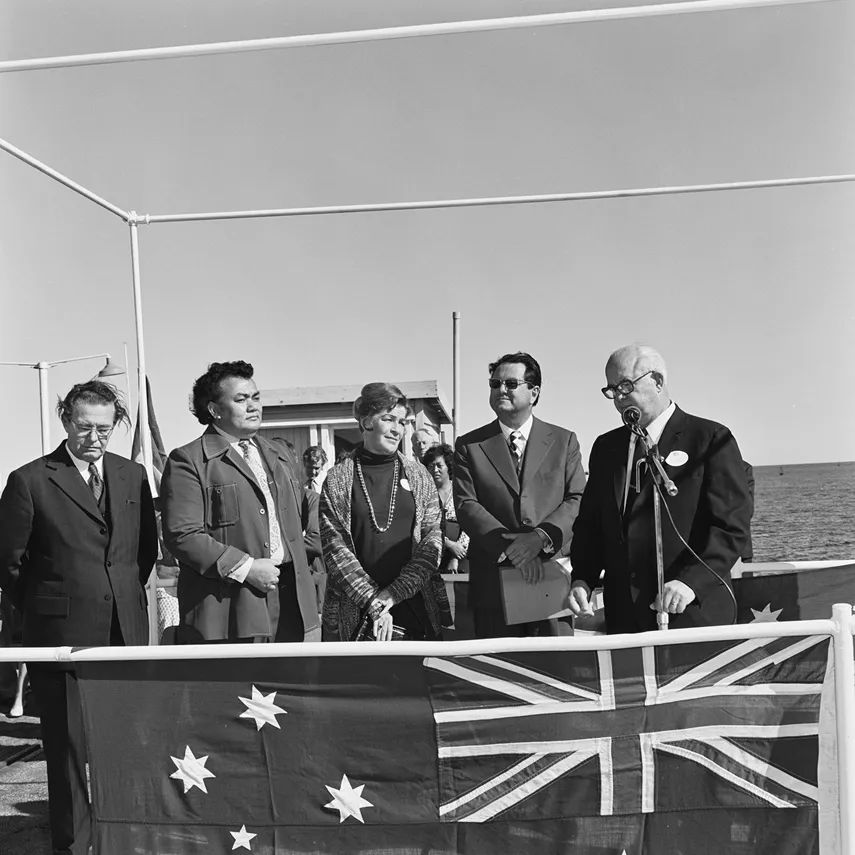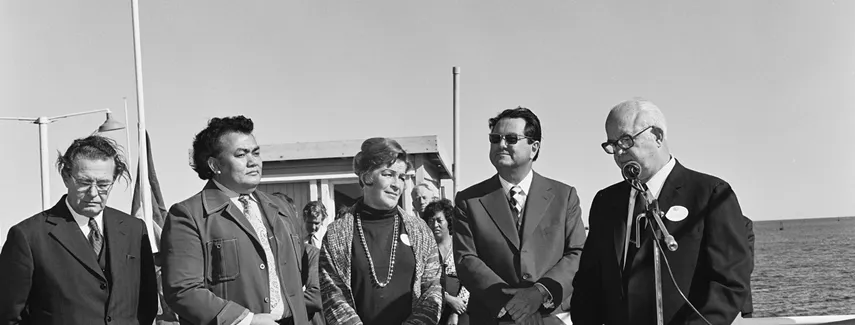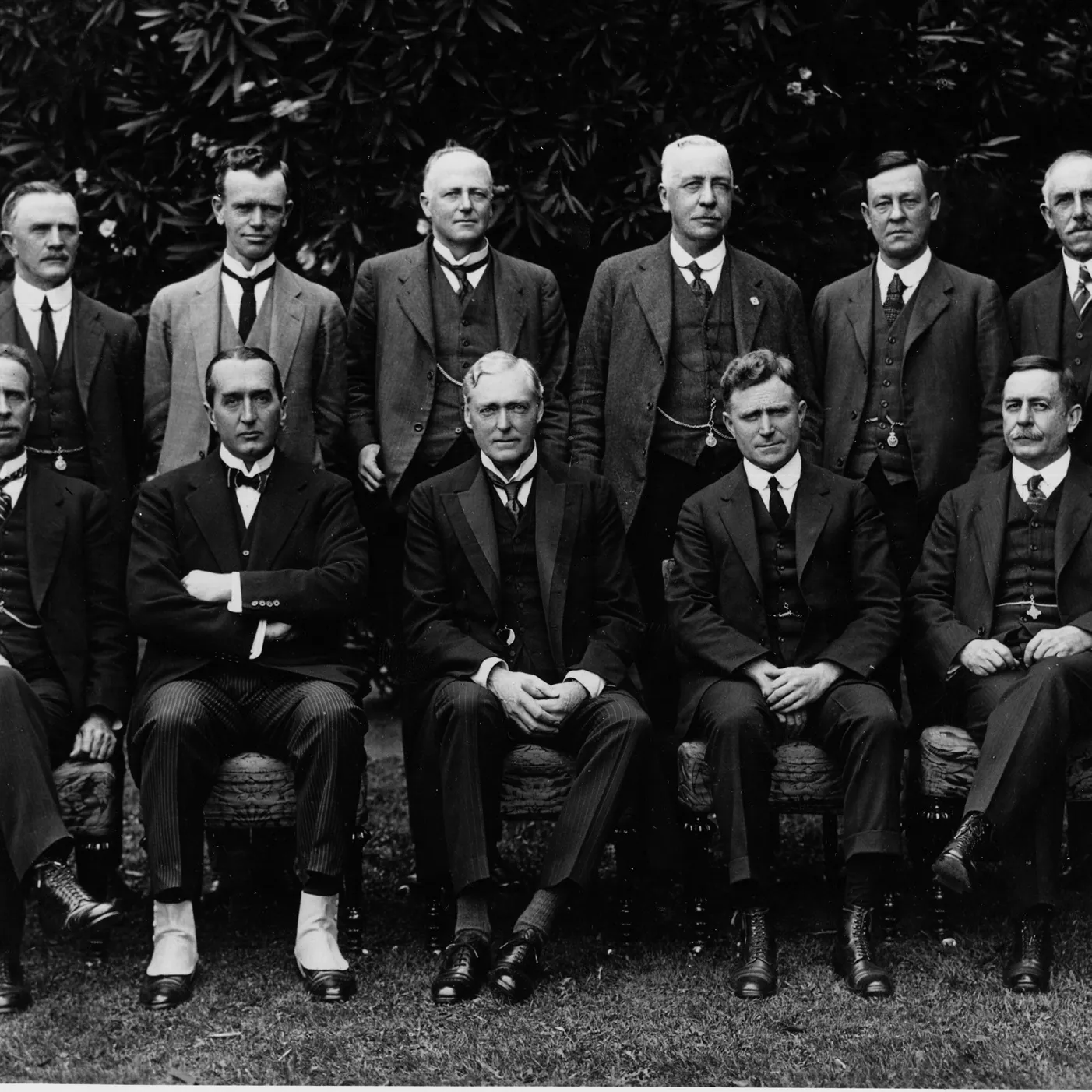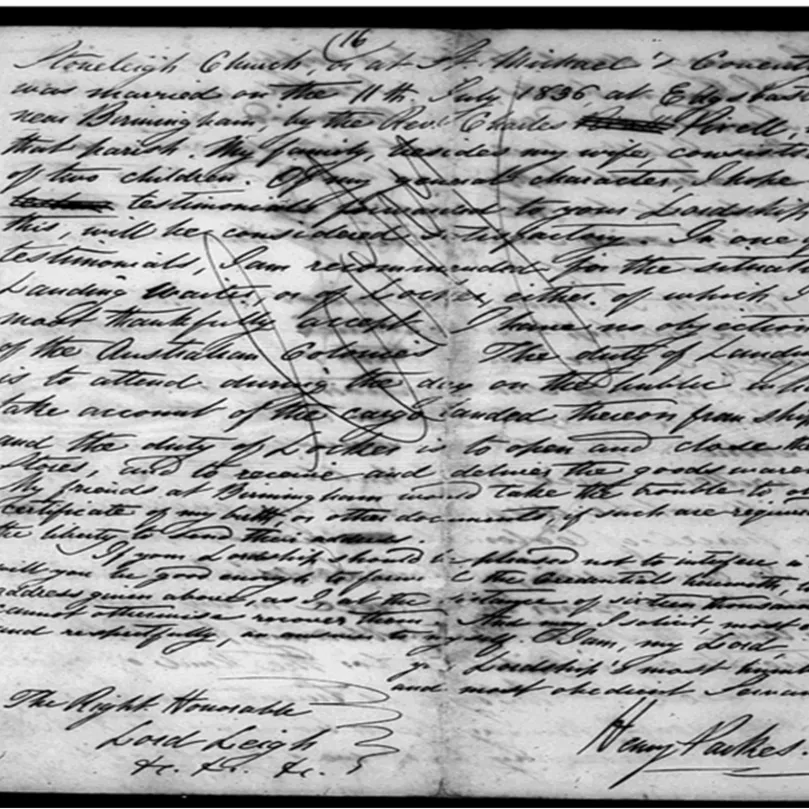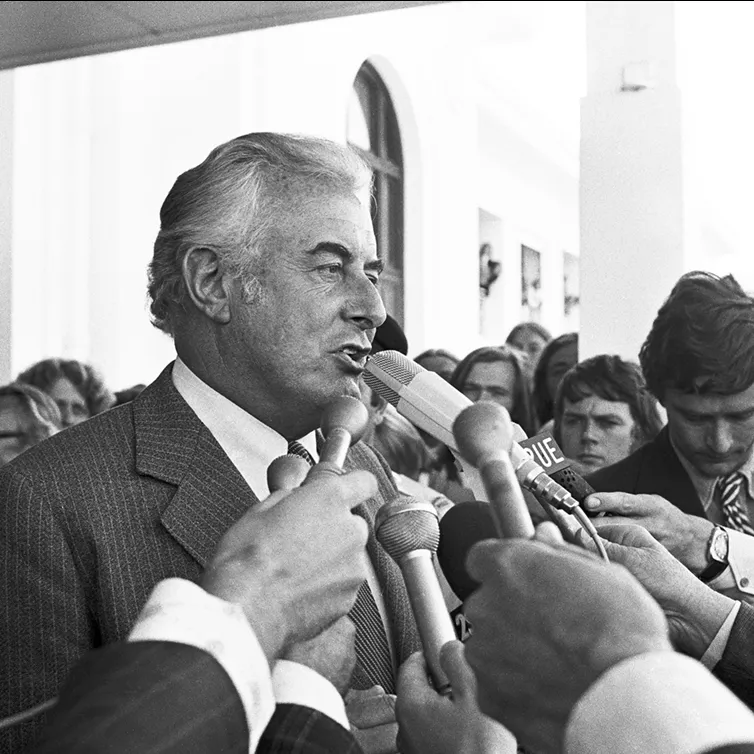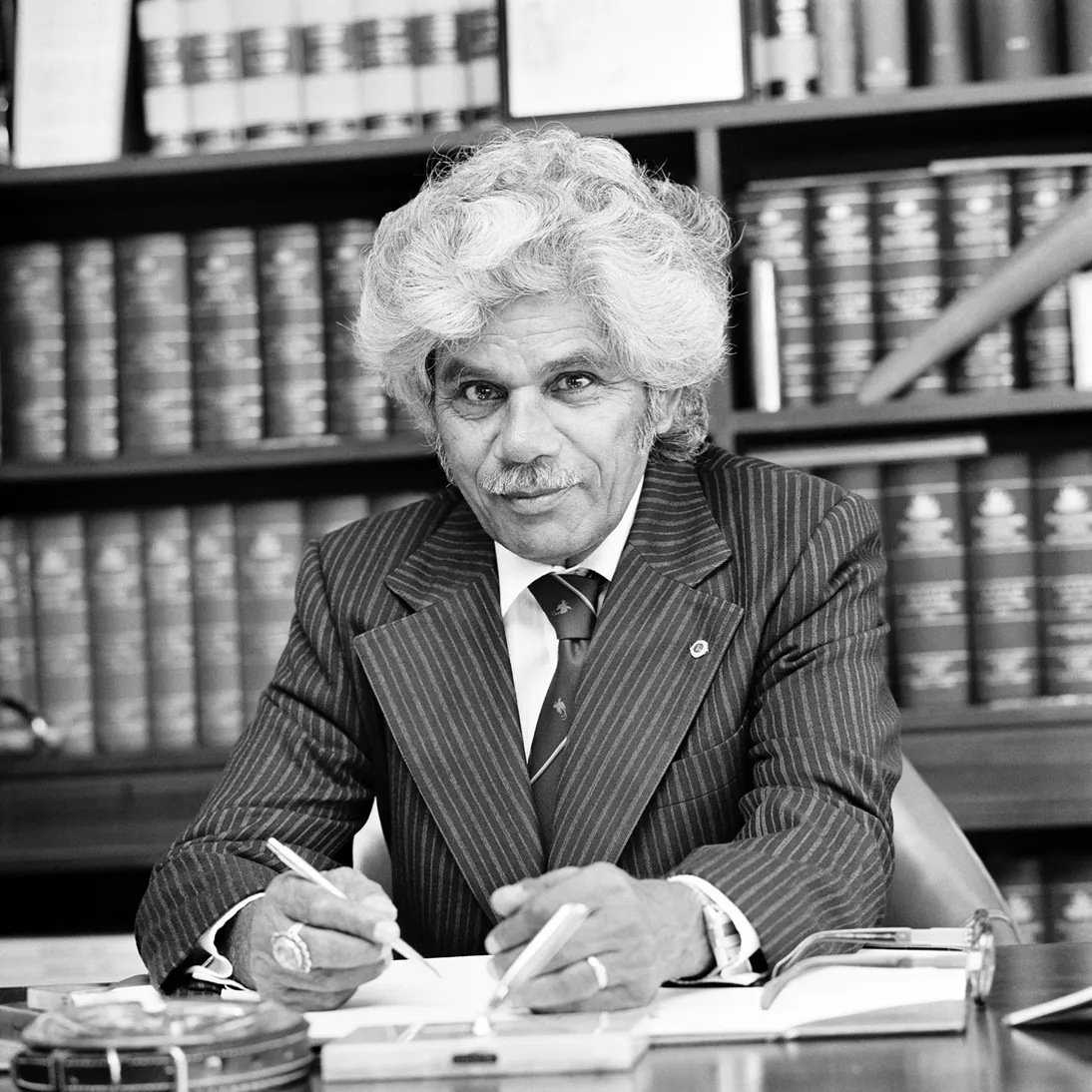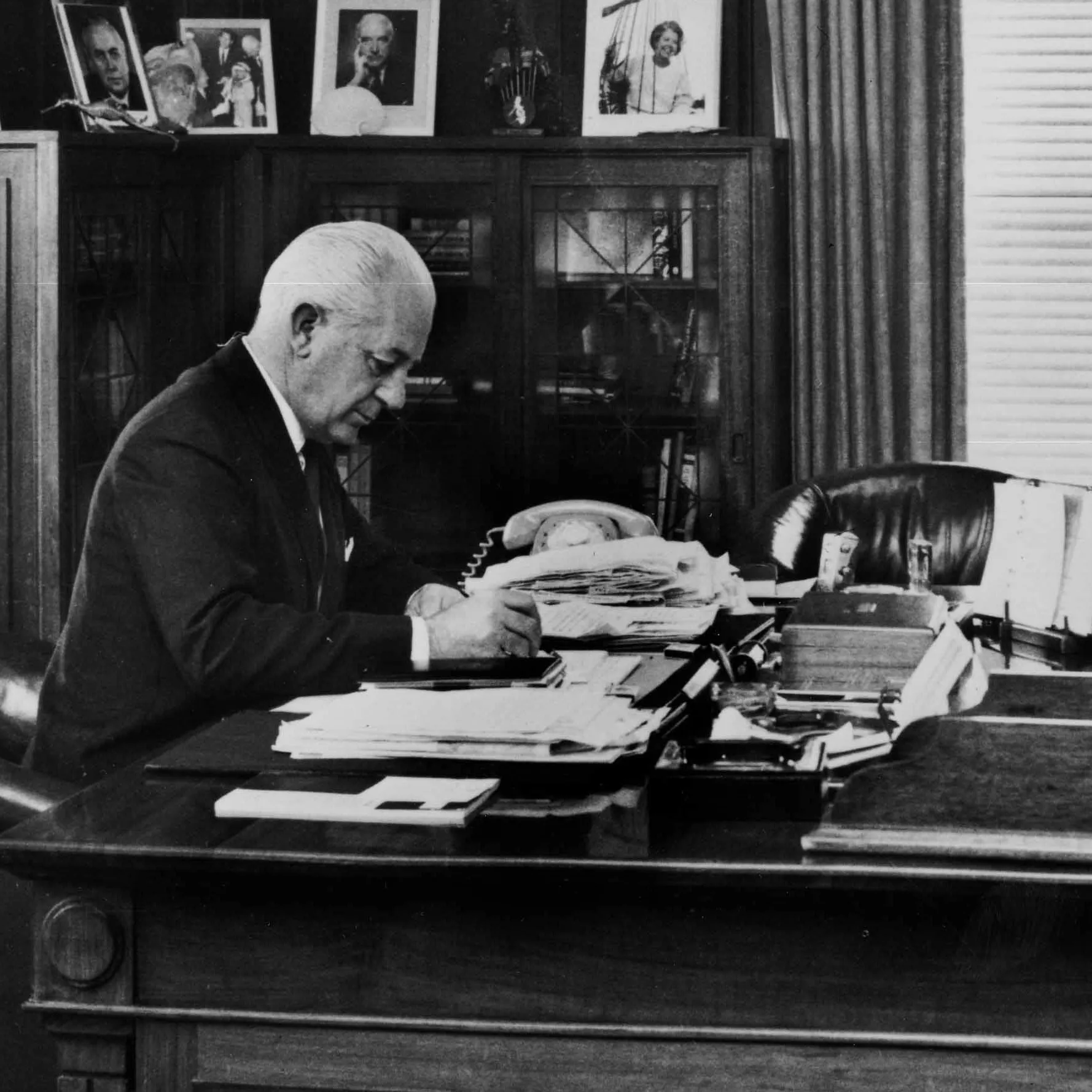Vale Reg Withers
- DateMon, 15 Dec 2014
Monday 15 November 2015 saw the death of former Fraser government minister Reginald Greive ‘Reg’ Withers at the age of 90.
A dedicated member of the Liberal Party of Australia, a senator for more than two decades, Cabinet Minister and finally Lord Mayor of Perth, Reg Withers had a long and illustrious political career. To many, Withers is best remembered for his role in the 1975 constitutional crisis and the dismissal of the Whitlam Labor government. As Leader of the Opposition in the Senate, it was Withers who masterminded the strategy of blocking passage of the government’s supply bills to force Gough Whitlam to an early election. Withers’ resilience and tough enforcement of the party line prevented the wavering Liberal senators from succumbing to the pressure to pass the appropriation bills, culminating in the government’s dismissal by the Governor-General on 11 November.
Reg Withers was born in Bunbury on 26 October 1924. His father, Frederick Withers, was a former Labor member of the West Australian Parliament, but Withers did not share his father’s politics. Withers first joined the Liberal Party during the Chifley Labor government era. He entered the Senate in early 1966 to fill a casual vacancy left by the death of Sir Shane Paltridge and, though defeated at the federal election later that year, he returned as a senator in 1968, and served until 1987. From 1972 to 1978 he was Liberal leader in the Senate, and became Vice President of the Executive Council and Minister for Administrative Services in the Fraser government from 1975 to 1978. In 1977 he was appointed to the Privy Council.
Early in his political career, Withers’ anti-communism let him to staunchly support the Vietnam War. Withers’ support for the war in was evident from his first speech in the Senate, where he said, in response to claims the South Vietnamese government was corrupt:
'…the charge of corruption is always made in respect of material things which, whilst they are bad enough in themselves, are nothing when compared with the corruption of human rights and the dignity of man that occurs under Communist governments. '(Hansard, 20 April 1966)
Withers was a dedicated anti-socialist throughout his career. He viewed Labor’s policies as authoritarian and socialist. This stance was clear, for example, in his opposition to the Whitlam government, suggesting that its claims of a mandate for specific policies was dangerous,
'To claim a so-called mandate on an individual policy issue, unless that issue has been directly put in a referendum or a policy speech, is dishonest. It is most unlikely that those who supported the ALP would give overwhelming support on all issues. It is probable that many who voted for the ALP are completely unaware of the Party’s attitude on some subjects and opposed to it on others. The Government, to my mind, is using the term as a justification to legitimise all Government action and implies that what it is doing is the will of the people. I believe that dictatorships and communist controlled nations claim that they follow the will of the people, and consequently to oppose that so-called ‘will’ is to become not only an enemy of the government, but of the people. Therefore, to claim that the Government is following the will of the people would be a dangerous precedent for a democratic country.' (Hansard, 8 March 1973)
Withers’ attitude and personality meant he was feared by opponents and respected by colleagues. His nickname, ‘Toecutter’, was derived from a Sydney gang who would remove the toes of their victims. Withers never lost his fire or his passion for politics and, despite his fierce reputation he was respected as a parliamentarian and tough negotiator. In 1991 he returned to politics as Lord Mayor of Perth, serving for three years. As a Perth identity he is remembered for his plans for developing housing and transport infrastructure. His association with Old Parliament House continued in 1998, when he was a monarchist delegate to the National Constitutional Convention.
Reg Withers is survived by three children and four grandchildren. He will always be a part of the history of our building and the tumultuous events of one day in November 1975.

